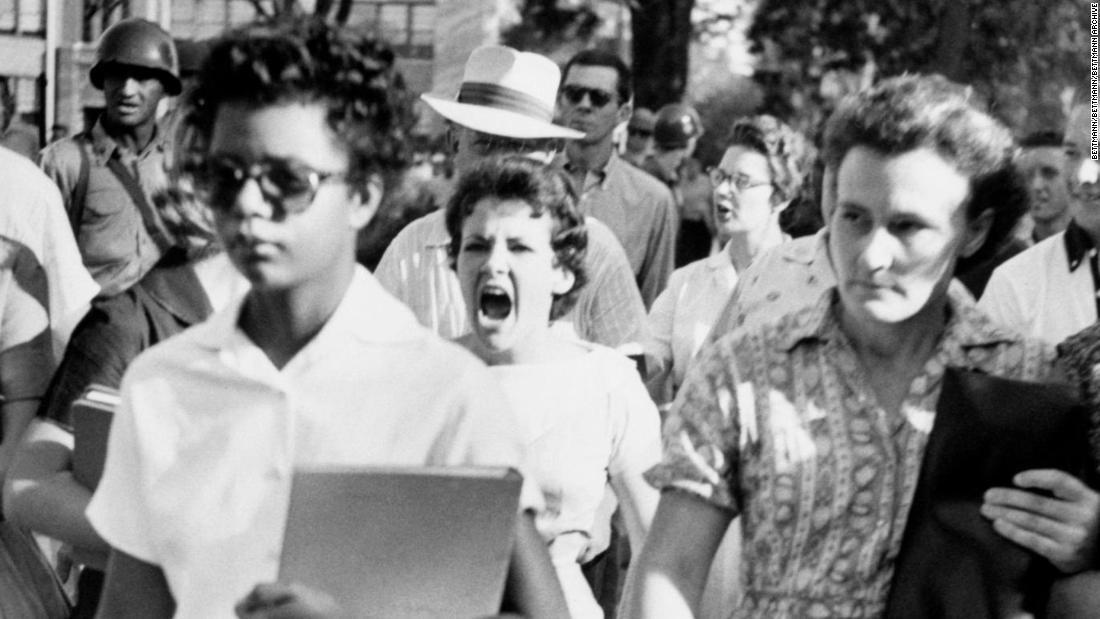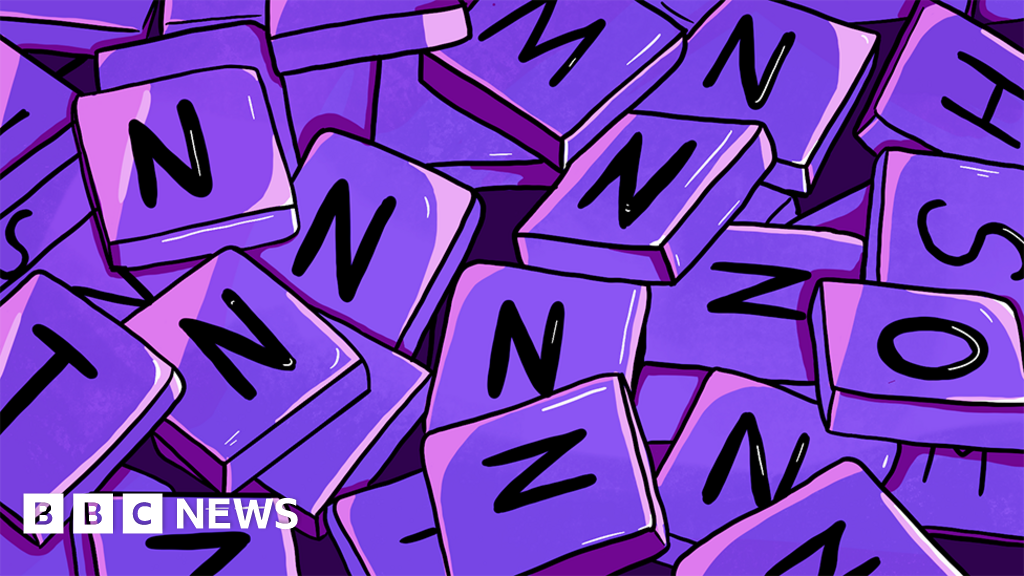Why Can Mexicans Say The N Word: A Deep Dive Into Culture, Identity, And Language
Let’s just cut to the chase—this is a topic that’s sparked heated debates, confusion, and even outrage. If you’ve ever wondered why some Mexicans or Latinx folks can use the N-word without backlash, you’re not alone. It’s a question that dives deep into cultural identity, historical context, and the complexities of language. But here’s the thing—this isn’t just about words; it’s about understanding the nuances of race, power, and privilege. So buckle up, because we’re about to unpack this big ol’ can of worms.
Now, before we get into the nitty-gritty, let’s clear the air. The N-word has a dark and painful history rooted in slavery, oppression, and systemic racism. For many Black people, it’s a word that carries generational trauma. So why do some Mexicans feel like they have the right to say it? The answer isn’t as simple as you might think.
This conversation isn’t just about Mexicans, though. It’s about how different cultures navigate language, identity, and race. And trust me, it’s a conversation that needs to happen. So, let’s break it down, piece by piece, and see if we can make sense of it all.
Read also:Is Alex Trumbles Wife Really A Mystery Letrsquos Dig In
Why Is This Even a Conversation?
First off, let’s talk about why this topic even matters. The N-word isn’t just a word—it’s a loaded term that carries centuries of pain. For Black people, hearing it can feel like a slap in the face, a reminder of the atrocities their ancestors faced. But for some Mexicans, the word doesn’t carry the same weight. Why? Well, it’s all about context, history, and cultural differences.
In many Latin American countries, race is viewed differently than in the U.S. While racism exists everywhere, the way it manifests can vary. In Mexico, for example, the concept of “mestizaje” (racial mixing) has shaped the national identity. This means that many Mexicans see themselves as a blend of Indigenous, European, and African ancestry. As a result, the lines between races can feel blurred.
Historical Context Matters
History plays a huge role in this conversation. During the colonial era, millions of African slaves were brought to the Americas, including Mexico. Over time, African influences blended with Indigenous and Spanish cultures, creating a unique melting pot. But here’s the kicker—while slavery existed in Mexico, it wasn’t as brutal or long-lasting as it was in the U.S. This doesn’t excuse racism, but it does help explain why some Mexicans might not fully grasp the weight of the N-word.
Let’s take a quick look at some numbers. According to the Mexican government, around 1.4% of Mexicans identify as Afro-Mexican. That’s a small percentage, but it’s still significant. Despite this, Afro-Mexicans have often been marginalized and erased from history. So, when Mexicans use the N-word, it’s not always out of malice—it’s often a lack of awareness.
What About the N-Word in Music and Pop Culture?
Pop culture plays a massive role in shaping how people view language. In recent years, Latinx artists like Bad Bunny, J Balvin, and Anuel AA have gained massive popularity. And guess what? Some of them use the N-word in their music. But here’s the thing—just because they say it doesn’t mean it’s okay for everyone to say it.
Let’s break it down. In hip-hop and reggaeton, the N-word is often used as a term of endearment or empowerment. For some artists, it’s a way to reclaim a word that was once used to oppress them. But here’s the catch—if you’re not Black, you don’t have the same right to reclaim it. That’s where the line gets drawn.
Read also:Exploring The World Of Eromecom A Deep Dive Into The Platform
The Power of Privilege
Privilege is a tricky thing. If you’re not part of the group that’s been historically oppressed by a word, you don’t have the right to use it. It’s that simple. For Mexicans, privilege can come in many forms—lighter skin, socioeconomic status, or even just being outside the U.S. racial system. But privilege doesn’t mean you’re a bad person; it just means you have to be more mindful of how your words affect others.
Here’s an analogy. Imagine you’re at a party, and someone starts making jokes about your family. You’d probably feel pretty upset, right? Now imagine that same person making jokes about their own family. It’s a different story, isn’t it? That’s how privilege works. If you’re not part of the group being targeted, your words can carry more weight—and more harm.
Why Is the N-Word Different for Black People?
The N-word is different for Black people because of its history. It was used as a tool of dehumanization during slavery, segregation, and beyond. For many Black people, hearing it can feel like a direct attack on their identity. But for non-Black people, the word doesn’t carry the same emotional weight. That’s why it’s so important to respect the boundaries set by the Black community.
Think of it this way. If someone tells you not to touch something, you don’t touch it. It’s not about whether you think it’s fair—it’s about respecting their boundaries. The same goes for the N-word. If Black people say it’s off-limits, it’s off-limits.
Can Mexicans Ever Use the N-Word?
This is the million-dollar question. Can Mexicans—or any non-Black person—ever use the N-word? The short answer is no. The long answer is… it depends. If you’re in a space where Black people feel comfortable and safe, and they’ve explicitly given you permission, then maybe. But even then, it’s a risky move.
Here’s the thing—language is powerful. Words have the ability to hurt or heal, depending on how they’re used. So, if you’re not sure whether it’s okay to say something, it’s probably best to err on the side of caution. And let’s be real—if you’re asking whether you can say the N-word, you probably shouldn’t.
What About “Reclaiming” the Word?
Reclaiming language is a delicate process. For some groups, reclaiming a word can be a powerful act of resistance. But here’s the thing—you can’t reclaim something that doesn’t belong to you. The N-word belongs to the Black community, and only they have the right to decide how it’s used.
Think of it like this. If someone steals your favorite shirt, you can’t just take it back and say, “Well, now it’s mine.” The shirt still belongs to the person who made it. The same goes for language. If you’re not part of the group that created the word, you don’t have the right to reclaim it.
The Role of Education
Education is key when it comes to understanding these kinds of issues. Many Mexicans—and people in general—simply don’t know the history behind the N-word. That’s why it’s so important to have conversations like this one. By learning about the origins of the word and its impact, we can become more mindful of how we use language.
Schools, media, and even families play a huge role in shaping how people view race and identity. If we want to create a more inclusive society, we need to start by educating ourselves and others. And let’s be real—no one’s born with an understanding of these issues. It’s something we have to learn and grow into.
How Can Mexicans Be Allies?
Being an ally means listening, learning, and taking action. If you’re a Mexican—or anyone else, for that matter—here are a few ways you can support the Black community:
- Educate yourself about the history of racism and its impact on Black people.
- Use your platform to amplify Black voices and stories.
- Speak out against racism and injustice when you see it.
- Respect the boundaries set by the Black community.
Being an ally isn’t about being perfect—it’s about being willing to learn and grow. And trust me, the Black community will appreciate your efforts.
The Bottom Line
At the end of the day, the N-word is a sensitive topic that requires nuance and understanding. While some Mexicans may feel like they have the right to use it, the reality is that it’s not their word to reclaim. The Black community has suffered enough at the hands of racism—we owe it to them to be more mindful of our words and actions.
So, what can you do? Start by educating yourself and having open, honest conversations with others. And remember—just because you don’t understand why something is hurtful doesn’t mean it’s not. Respect, empathy, and humility are the keys to bridging these divides.
Final Thoughts
Let’s wrap this up with a call to action. If you’ve made it this far, congratulations—you’re clearly interested in learning more about this complex issue. Now it’s time to take that knowledge and put it into action. Share this article with your friends, have those tough conversations, and most importantly, listen to the voices of the Black community.
And hey, if you’re still confused or have questions, that’s okay. This is a conversation that’s meant to evolve. Just remember—one small step toward understanding can make a big difference in the world. So, let’s keep the dialogue going, one word at a time.
Table of Contents
- Why Is This Even a Conversation?
- Historical Context Matters
- What About the N-Word in Music and Pop Culture?
- The Power of Privilege
- Why Is the N-Word Different for Black People?
- Can Mexicans Ever Use the N-Word?
- What About “Reclaiming” the Word?
- The Role of Education
- How Can Mexicans Be Allies?
- The Bottom Line



